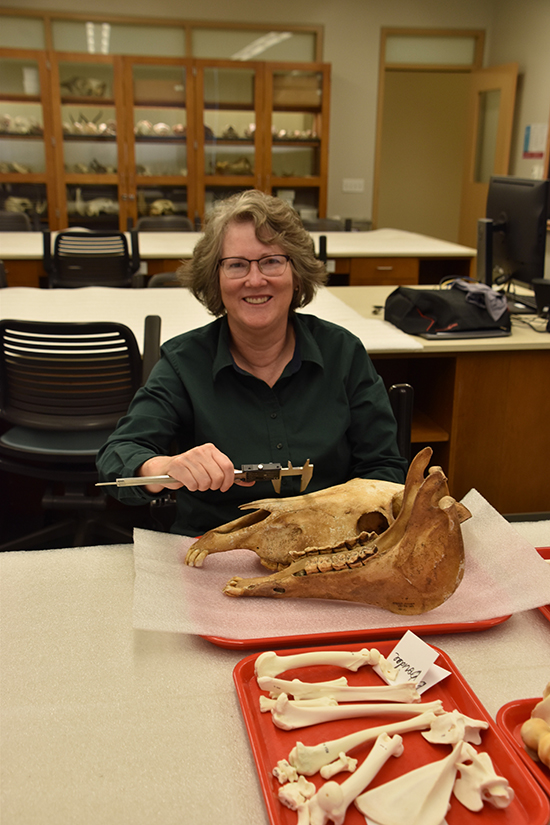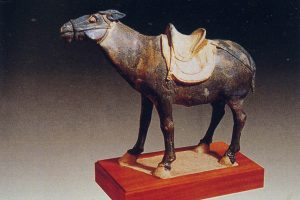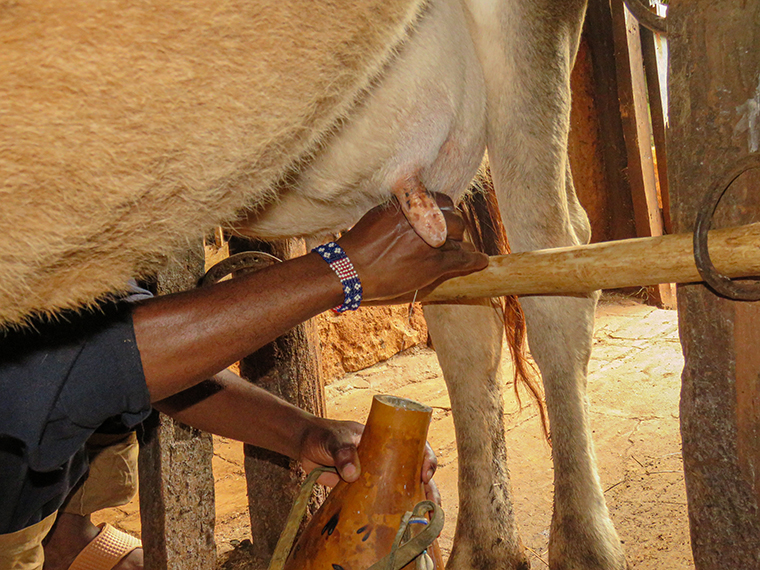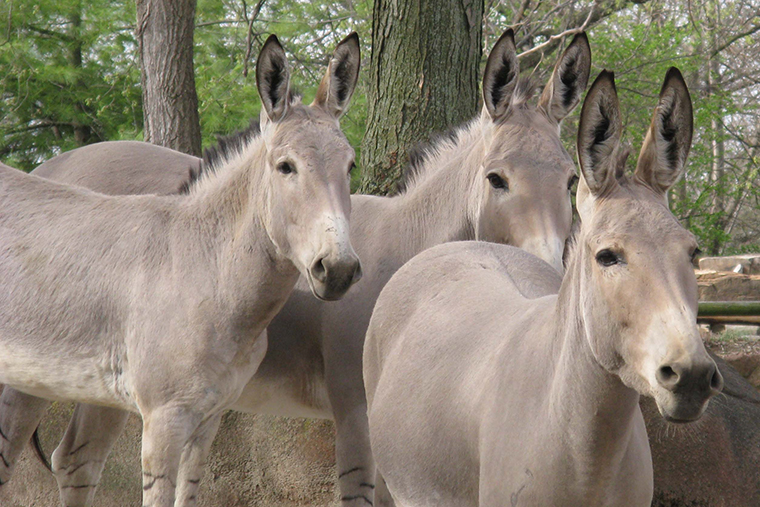
Washington University in St. Louis anthropologist Fiona Marshall joins the likes of songwriter and activist Joan Baez and former Attorney General Eric Holder as a newly elected member of the American Academy of Arts and Sciences, the academy announced April 23.
Founded in 1780, the academy honors exceptional scholars, leaders, artists and innovators and engages them in sharing knowledge and addressing challenges facing the world.
Previous members from Washington University include Chancellor Emeritus Mark S. Wrighton, Barbara A. Schaal, dean of the faculty of Arts & Sciences, scientific innovator Philip Needleman and the late writer William Gass, among some 62 overall.
“Fiona’s teaching and research continues to expand our understanding of interactions between humans and the animals we depend on,” said Chancellor Andrew D. Martin. “She has sometimes focused on amusing and underappreciated domestic partners — like donkeys — but her serious and prolific scholarship continues to bring to light complex interactions among ancient agricultural, pastoral and hunter-gatherer societies.”
Marshall, the James W. and Jean L. Davis Professor in Arts & Sciences, is an Old World prehistorian specializing in the study of early food production in Africa and in the domestication of animals, including donkeys and cats.

Already this year, Marshall has published two papers that garnered broad international attention. One study told the story of a Chinese noblewoman in the Tang Dynasty buried with her donkeys so that she could play polo in the afterlife. Another study, which provides the earliest evidence of African herders drinking fresh animal milk more than 5,000 years ago, had a special personal significance for Marshall.
“This work is enormously important for understanding the history of milk drinking worldwide,” she said. “There are more mutations that support milk drinking in Africa than elsewhere in the world, with only one across most of Eurasia and others in Arabia and South Asia.
“For me, it is coming full circle since I did my undergraduate honors thesis on bones and ancient herds from Dongodien, the oldest settlement site with milk residues, and my PhD on Ngamuriak — one of the most specialized ancient pastoral settlements in the Mara-Serengeti.”

Born and raised in Nairobi, Kenya, Marshall’s work has focused on African archaeology. Her use of zooarchaeological and ethnoarchaeological techniques to understand the relationships between early food production, climatic shifts and the spread of early herders in Africa has advanced the field of study and has positioned her as an international expert on human influences on African savannas and on animal domestication.
Marshall earned her PhD in anthropology in 1986 from the University of California, Berkeley. A member of the Washington University faculty since 1987, Marshall was promoted to full professor in 2002 and to the Davis professorship in 2015.
Marshall was recognized with the Outstanding Faculty Mentor Award by the Graduate Student Senate in 2014 and the Distinguished Faculty Award by the Washington University Alumni Association in 2018. She won the Arthur Holly Compton Award for Faculty Achievement in 2019. Marshall is also a member of the National Academy of Sciences.

New members are to be inducted at a ceremony planned for October in Cambridge, Mass.
They join the academy members who came before them, a list that includes: Benjamin Franklin (elected 1781) and Alexander Hamilton (1791) in the 18th century; Ralph Waldo Emerson (1864), Maria Mitchell (1848) and Charles Darwin (1874) in the 19th; and Albert Einstein (1924), Robert Frost (1931), Margaret Mead (1948), Milton Friedman (1959) and Martin Luther King Jr. (1966) in the 20th.